Marieta & Ivo
Bulgaria
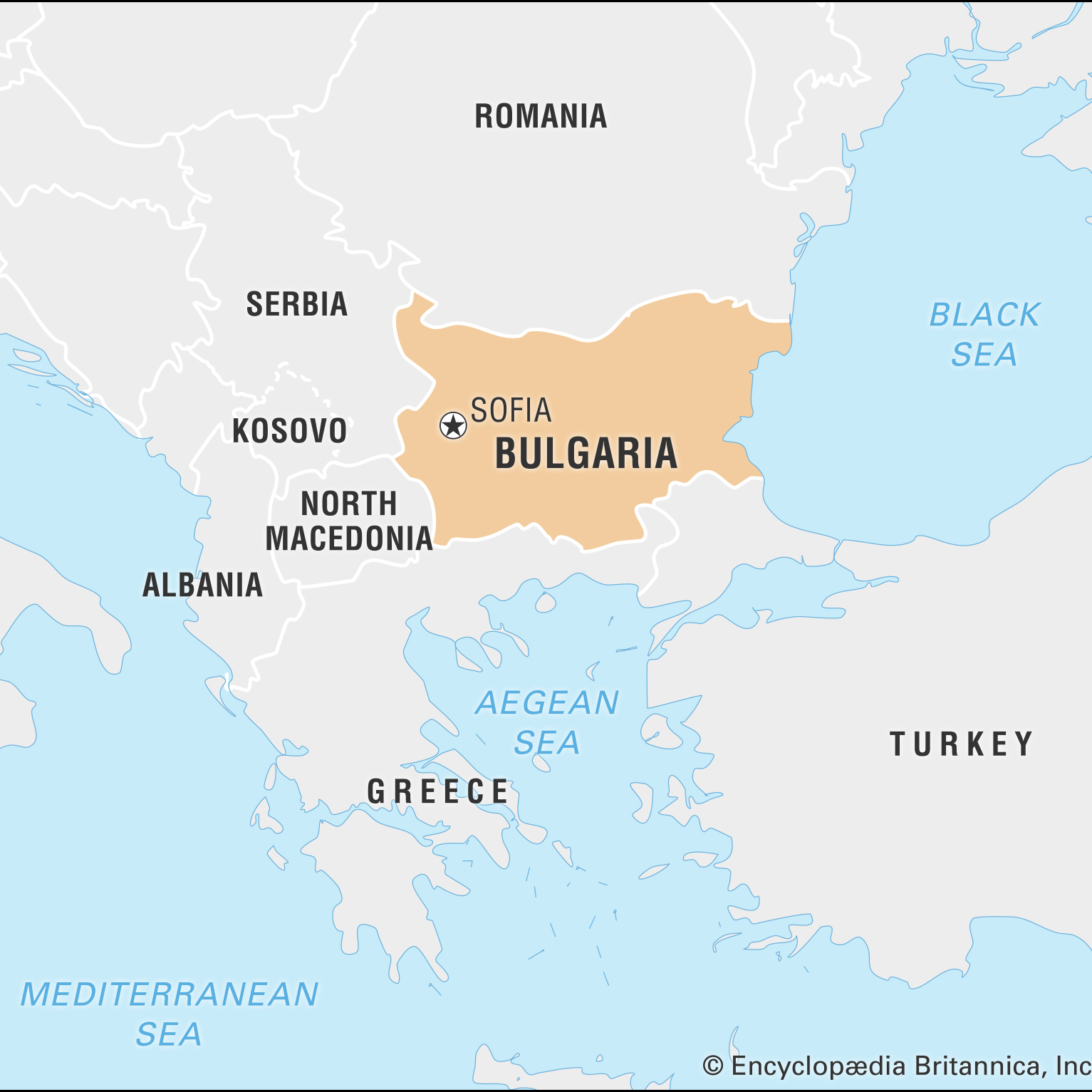
Geography And Climate
-
Bulgaria is located on the Balkan Peninsula in Southeast Europe. It is bordered by Romania on the north, Greece, and Turkey on the south, Serbia and Macedonia on the west, and the Black Sea on the east. The climate in Bulgaria is surprisingly similar to the weather in Illinois! Summers are hot, winters are cold, and Spring and Fall are very pleasant. Early September in Bulgaria is usually in the high 80s and low 70s with no humidity.
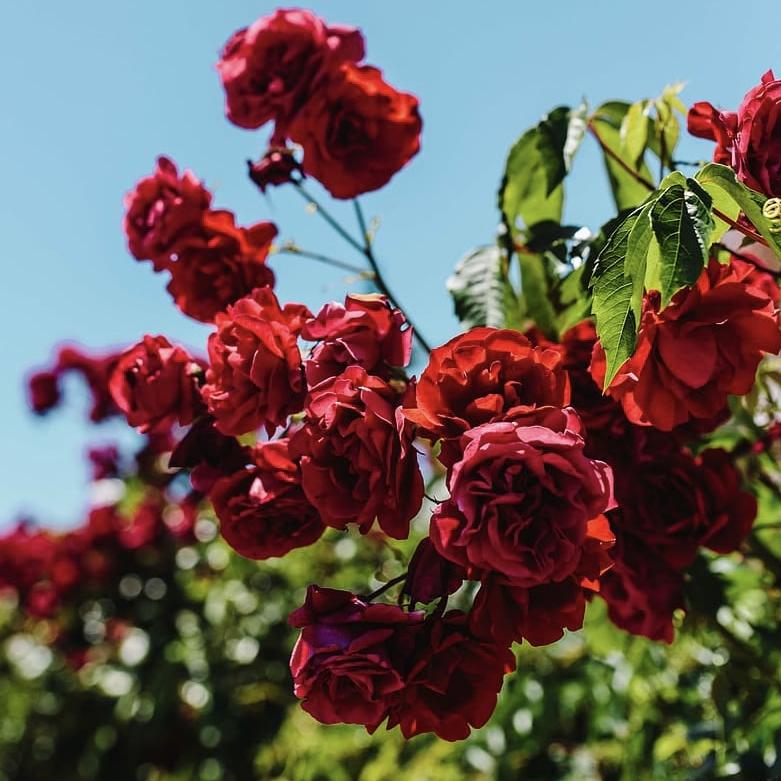
National Flower - Rose
-
The Rose is the national flower of Bulgaria; it is also referred to as the queen of flowers. It is presented to guests who are visiting as it is considered as a symbol of friendship in Bulgaria. Bulgaria is one of the biggest rose oil producers in the world and a country that has been closely related to the beautiful flower for centuries. The Rose Valley is a region in Bulgaria located just south of the Balkan Mountains and the eastern part of the lower Sredna Gora chain to the south. Fun fact: Ivo's hometown is in The Rose Valley. :)
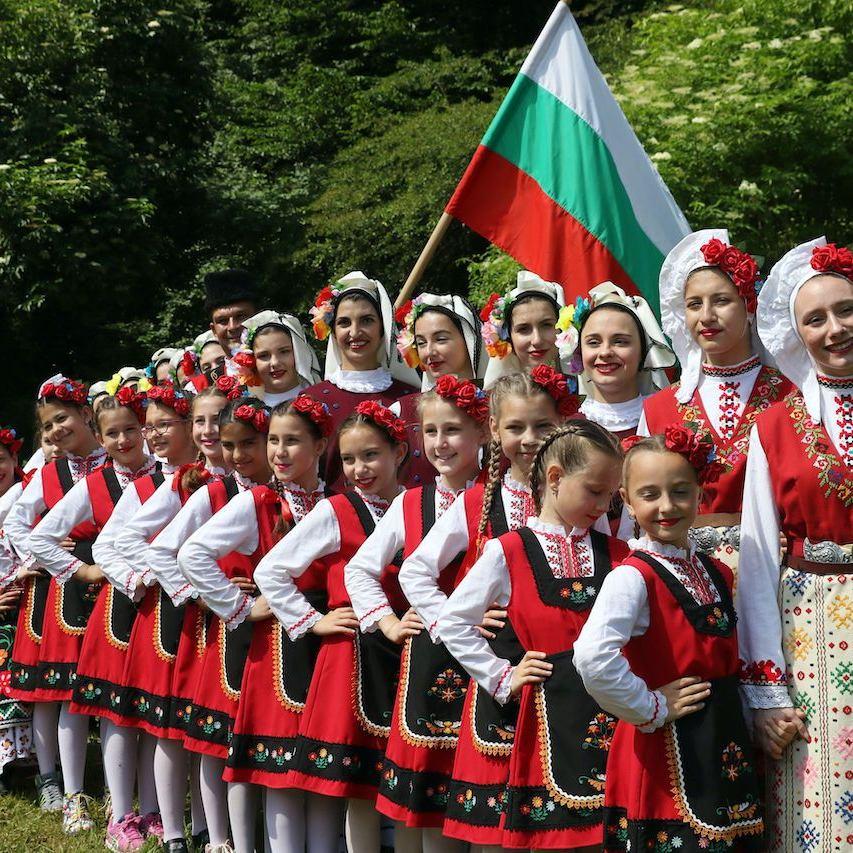
Culture
-
Bulgarian culture is as unique and bold as its people, who hold family and national traditions very close to the heart. Everywhere you’ll go you’ll find handcrafted souvenirs, traditional-style restaurants with live folklore music, and dancing. Bulgarians are loud, always happy, and like true Europeans, they don’t work too hard. The coffee shops are packed at all times and people live a more relaxed lifestyle. Bulgarians are also extremely kind and welcoming towards everyone, especially tourists. They go out of their way to welcome you into their country and make your experience memorable. You will likely be given a lot of hugs and a lot of food to try.
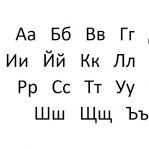
Language
-
Bulgarians speak Bulgarian, it is similar to other Slavic languages such as Russian, Serbian & Czech. Bulgaria invented the Cyrillic alphabet. Добре дошли в България! (that says Welcome to Bulgaria). Do not fear - a majority, if not all, signs are written in English as well. In big cities, like Sofia, people speak English, especially at stores, restaurants, and hotels. Since it is a tourist destination, restaurants have English menus available. A very important thing to note is that Bulgarians shake their heads side to side for “yes” and nod for “no.” This makes communication a bit difficult so try to limit your head shaking to avoid confusion.
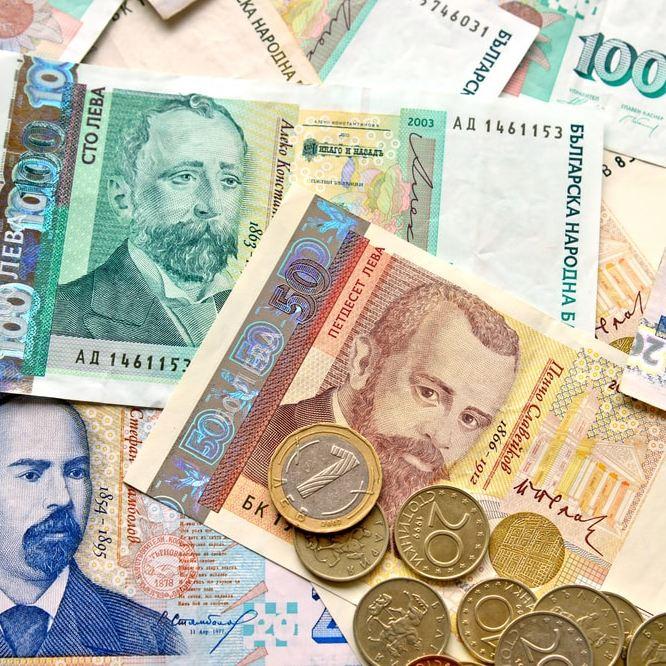
Currency
-
Although Bulgaria is in the EU, Bulgaria does not use the EURO. The Bulgarian currency is the lev, plural leva in Bulgarian, and frequently levs in English. $1 is roughly 1.7 LEVA. We have seen it dance between 1.5 to 2 LEVA per 1 USD over the years. Cards are accepted in some restaurants and stores but if your banks charge fees for international transactions, then we would recommend using cash. Cash is available from banks and ATMs all around the country. Foreign cash may be exchanged in change bureaus, banks, or hotels. Tipping: Tipping is not common in Bulgaria since everyone is paid a salary, including restaurant employees. Less than 10% of the bill is okay in restaurants. A good rule of thumb is to round up a few levs.
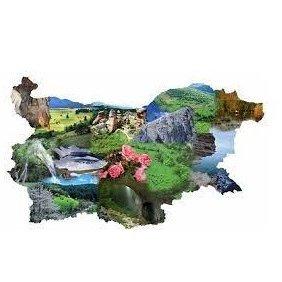
Tourism
-
Bulgaria is a small country with a lot to offer the curious tourist. There are nine locations listed as UNESCO World Heritage sites and the country is full of history - there are Grecian and Roman ruins scattered throughout. The country is covered with mountains making it a popular hiking destination in Europe. In the winter, Bulgaria gets a lot of snow and Pamporovo is one of the top skiing destinations in the region. The east coast of Bulgaria is the Black Sea which is flooded with tourists over the summer since the beaches are stunning and cheap. If you plan to stay for longer we would be happy to help you plan a few days in Bulgaria or extend your trip by visiting nearby countries like Greece!
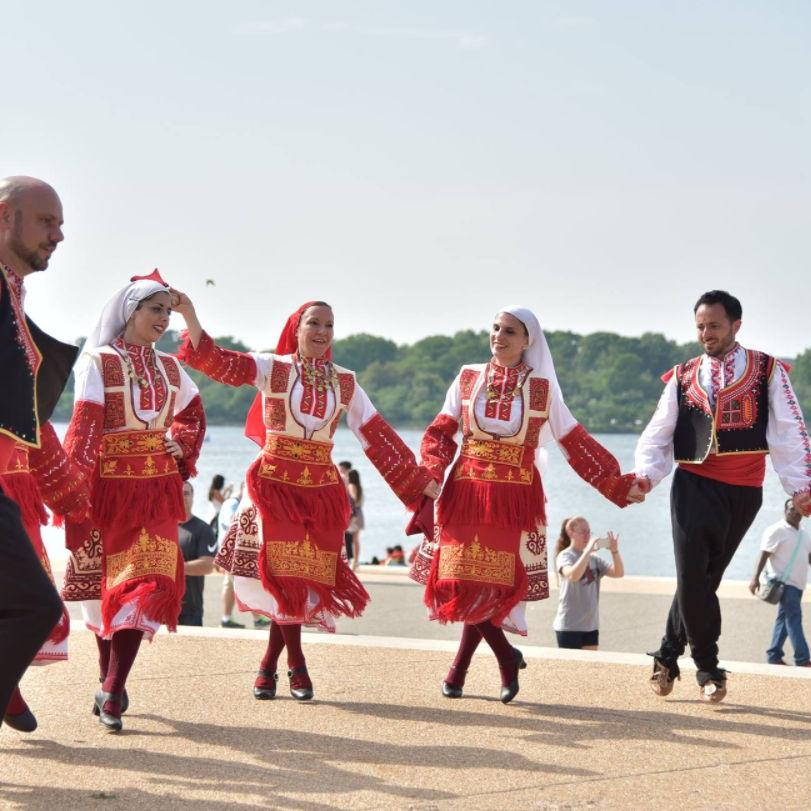
Bulgarian Dance - "Horo"
-
We will dance a traditional Bulgarian line dance called a “horo” where guests hold hands and form a circle. It is a part of every Bulgarian celebration, especially weddings. It is simple to learn and it would mean the world to us if you took a few minutes to learn the steps and joined in on our wedding day. Our Bulgarian family will help lead you and they will be extremely happy to have Americans join in on the traditions. The horo will be danced on the streets as well as the wedding venue itself. Here is a YouTube tutorial of how to do the dance - https://www.youtube.com/watch?v=ueLhAxJ6Ndg
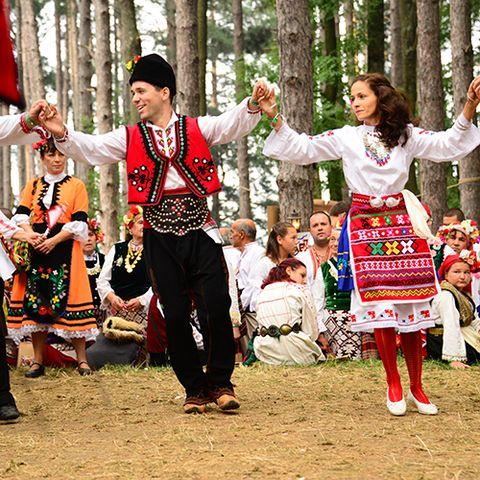
Weddings
-
Weddings are a big celebration in Bulgaria with quite extensive traditions. The typical BG wedding is lively, cheerful, & loud, with lots of dancing & alcohol. Religious weddings in Bulgaria must take place on Sunday. One of the most important rituals is the crowning of the couple during the ceremony. Both the bride & the groom are crowned with a special crown provided by the church – it symbolizes Jesus’s crown of thorns. You will notice that guests will start to occasionally yell “Gorchivo!” after the ceremony. “Gorchivo” means “bitter” – & that is a signal that the newlyweds should sweeten the moment with a kiss. Bulgarians don't have bridesmaids/groomsmen, instead they have "Kumove". The “Kumove” or also known as godparents in Bulgaria, are often the closest friends of the couple.
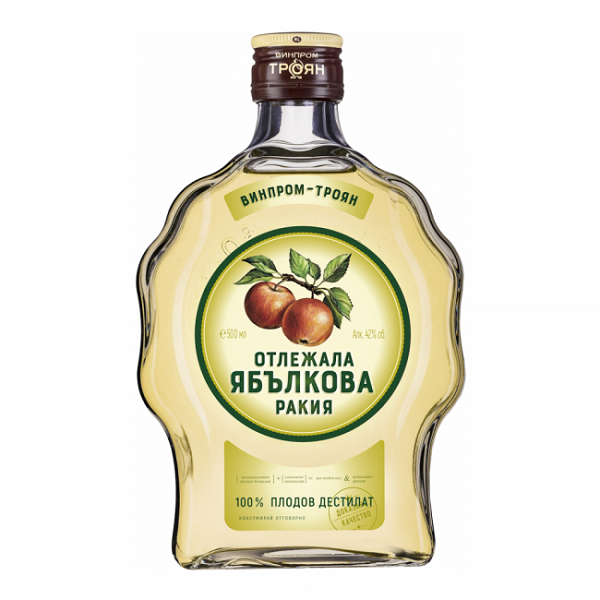
Alcohol
-
The most emblematic of all Bulgarian alcoholic drinks is rakia, a strong brandy made of plums, grapes, or other fruits. Many Bulgarians distill their own rakia and are really proud to serve you their own product. The homemade rakia is usually much stronger than the one bought in stores. How to say "Cheers" in Bulgarian: Nazdrave (Naz-drah-veh) Bulgarian weddings are a marathon, not a sprint. Drinking starts early in the day and continues into the late hours of the night so pace yourselves accordingly ;)
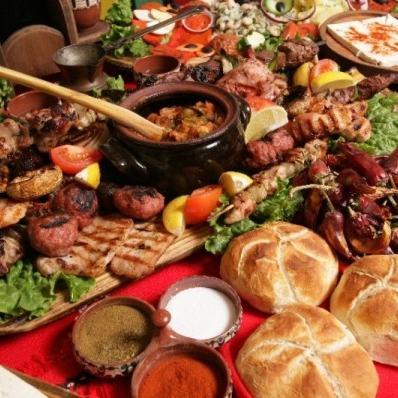
Food
-
Bulgarian cuisine is largely Mediterranean. It is packed with fresh veggies, cheese, meat, & regional specialties. There are many small bakeries where you can get a warm freshly baked pastry (must try Banitza!). Dining out is delightfully inexpensive, an appetizer & main course comes to around $7 per person at most restaurants. A point of national pride for Bulgarians is the fact that the bacterium which causes milk to naturally turn into yogurt was discovered by a Bulgarian scientist & was named after their country. We recommend trying Bulgarian yogurt! Bulgarians treat meals as an experience. They usually take hours and each course is enjoyed slowly. The waiters & waitresses will not check on you unless you call them since checking on the table is perceived as disturbing your meal.